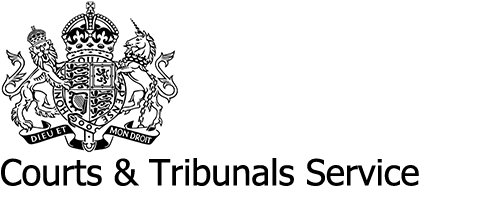Coroner's Inquest
Inquest
If it was not possible to find out the cause of death from the post-mortem examination, or the death is found to be unnatural, the Coroner has to hold an inquest. An inquest is a public court hearing held by the Coroner in order to establish who died and how, when and where the death occurred.
An inquest is different from other types of court hearing because it is a fact finding process and there is no prosecution or defence. The purpose of the inquest is to discover the facts about the death. This means that the Coroner cannot find a person or organisation criminally responsible for the death.
The inquest will be held as soon as possible and ordinarily within 3 months of the death being reported. The Coroner will let you know if more time is needed and what to expect in your case.
Who can attend an inquest?
Inquest hearings are almost always held in public. The next of kin are by law interested persons and will therefore be informed of the details of any hearings in advance.
If you choose to attend the inquest you can be accompanied by a supporter, for example a friend. Some bereaved people prefer not to attend, as the details of the death may be distressing.
Witnesses may be asked to attend to give evidence. Members of the public and media are normally allowed to attend the inquest.
Opening the inquest
Where an inquest is required the Coroner must open the inquest as soon as possible. This is usually done within 7 days of the report of the death to the coroner. This "opening" of the inquest is typically very brief but is usually held in public. The Coroner will then immediately adjourn the inquest until a later date by when he or she will have the information required to complete the inquest. At the opening of the inquest the coroner will where possible set the dates for subsequent hearings.
Pre-inquest hearing
Sometimes the Coroner may hold one or more hearings before concluding the inquest. The Coroner will invite you to any pre-inquest hearings.
It is not necessary for you to attend the opening of the inquest but you may if you wish to do so.
At the end of the inquest
The Coroner comes to a conclusion at the end of an inquest. This includes the legal determination, which makes findings in relation to the questions about who died, when they died and where and how they died. The Coroner also makes findings to allow the cause of death to be registered. When recording the cause of death the coroner may use one of the following terms:
- Accident or misadventure
- Unlawful killing
- Natural causes
- Open
- Road traffic collision
- Suicide
The Coroner may also make a brief narrative statement setting out the facts surrounding the death in more detail and explaining the reasons for the conclusion.
After the inquest has concluded the coroner will inform the Registrar of Births and Deaths of the outcome and arrange for the death to be registered.
Do I need a legal practitioner?
In most cases instructing a legal practitioner to represent you is not necessary, but you may do so if you wish. An inquest is a fact-finding process and the Coroner will ensure that the process if fair and thorough, and that your questions about the facts of the death are answered.
It is important that you tell the Coroner if you will have a legal practitioner present, so that the coroner knows they are there at your request and with your consent. Your legal practitioner may also attend any pre-inquest review.
Is Legal Aid available?
Interested persons may be entitled to legal aid under the Legal Aid Ordinance 2020. To find out if you qualify for legal aid please consult a legal practitioner or view the legislation here.
More information
This guidance is a brief summary and does not cover every circumstance. Please ask the coroner's officer or court staff as many questions as you need.
